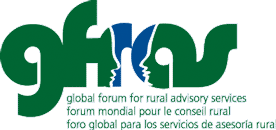Eastern and Central Africa continue to face acute and chronic food and nutrition insecurity1. Combined with a high incidence of HIV, food security continues to affect the nutrition and health status of poor households. There is growing recognition of the vital importance of expanding agricultural development capacity to include nutrition objectives, particularly in agricultural extension and training. The adoption of participatory extension approaches, such as the Farmer Field School (FFS), provides additional opportunities to move agricultural development beyond productivity and yield goals to more effectively contributing to improved nutritional outcomes.
 Every country has developed, formulated, and decreed national policies related to rural advisory services. Find some examples here. If you are looking for a national policy from a specific country, please use the search function, selecting the category “National policies” and the tag for the country.
Every country has developed, formulated, and decreed national policies related to rural advisory services. Find some examples here. If you are looking for a national policy from a specific country, please use the search function, selecting the category “National policies” and the tag for the country.
Wednesday, 02 May 2018 17:00
Integrating Nutrition in Farmer Field Schools in Eastern Africa
Written by Ingrid OliveiraDownload here5326 times downloaded
Published in
Research
Latest from Ingrid Oliveira
- Sustainable Undernutrition Reduction in Ethiopia: Training manual for Health and Agriculture Development Armies
- What Every Extension Worker Should Know - Core Competency Handbook
- Sustainable Nutrition Manual Part 3: Healthy Designs
- Sustainable Nutrition Manual Part 2: Healthy Environments
- Sustainable Nutrition Manual Part 1: Healthy Humans


